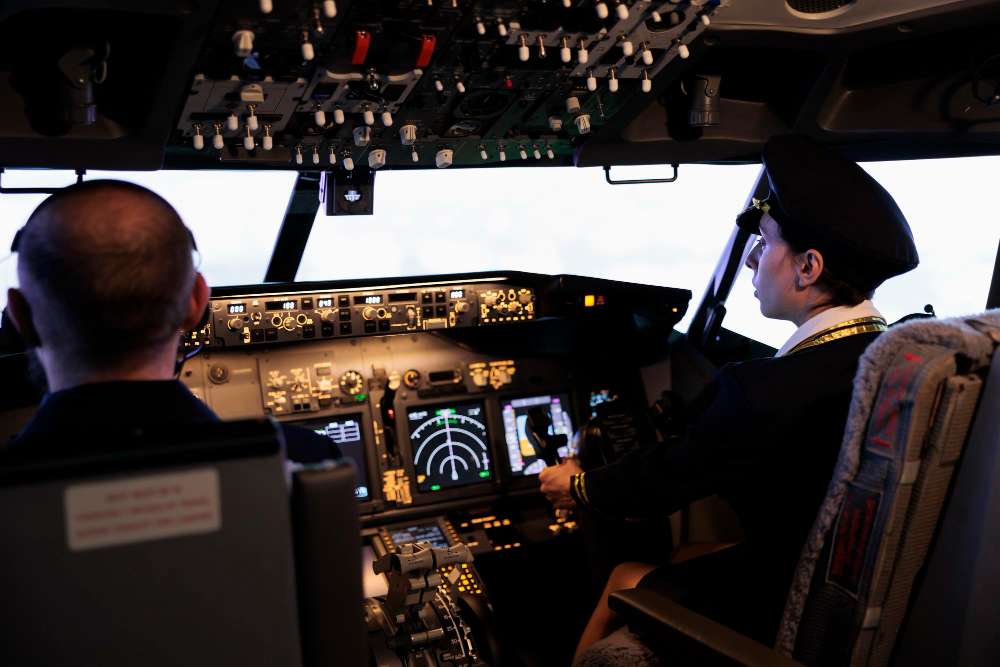The aviation industry demands the responsibilities of a pilot extend far beyond the confines of the cockpit. As the aviation industry evolves, propelled by technological advancements and regulatory changes, the imperative for continuous learning becomes a cornerstone of a pilot’s professional journey. The significance of ongoing professional development for pilots, exploring how the pursuit of knowledge and skills beyond initial qualifications is not just a choice but a necessity in navigating the complexities of the modern aviation landscape.
The ever-evolving aviation landscape
The aviation industry is renowned for its commitment to safety, precision, and adherence to rigorous standards. However, these attributes also underscore the industry’s susceptibility to change. From technological innovations to shifts in regulatory frameworks, pilots find themselves in an environment where adaptability and continuous learning are paramount.
One of the defining features of contemporary aviation is the rapid pace of technological evolution. New aircraft models are equipped with cutting-edge avionics, navigation systems, and communication tools. Pilots must continually familiarise themselves with these advancements to operate aircraft efficiently and, more importantly, ensure the safety of passengers and crew.
Aviation is a highly regulated industry, and changes to safety protocols, operational procedures, and international standards are not uncommon. Pilots must stay abreast of these regulatory changes to ensure compliance and contribute to a seamless and standardised global aviation ecosystem.
The imperative of continuous learning
Continuous learning allows pilots to deepen their technical proficiency, refining their understanding of aircraft systems, navigation procedures, and emergency protocols. This not only contributes to operational efficiency but also positions pilots as leaders in ensuring the highest standards of safety.
Safety is the bedrock of aviation, and continuous learning reinforces a safety-centric mindset. By staying informed about the latest safety protocols, incident analyses, and best practices, pilots contribute to a culture of safety that permeates every aspect of their professional endeavours.
The integration of technology into aviation operations is transformative but also demands a proactive approach to learning. Pilots who invest in staying ahead of technological advancements not only harness the full potential of new tools but also play a crucial role in driving innovation within the industry.
The role of education in ongoing development
A Diploma of Aviation in Australia serves as a foundational pillar for aspiring pilots. Beyond initial qualifications, it lays the groundwork for a lifelong journey of learning. The comprehensive education provided by reputable institutions equips pilots with not only technical skills but also a mindset of curiosity and a commitment to continuous improvement.
Becoming a flight instructor is not just a career progression; it is a profound opportunity for ongoing learning. Flight instructors not only impart their knowledge but also engage in a reciprocal process of learning from their students. This dual role enhances their understanding of aviation principles and pedagogy, contributing to their overall professional growth. Individuals who hold a Flight Instructor Rating in Australia play a crucial role in aviation education.
Aviation training in Australia is renowned for premium training facilities and plays a pivotal role in shaping the next generation of aviators. Aviation training programs in Australia provide a holistic approach that goes beyond the essentials, instilling in students a passion for learning and an understanding of the broader industry landscape.
Navigating leadership roles
Continuous learning positions pilots for leadership roles within the aviation community. Whether as captains, chief pilots, or industry leaders, those who embrace ongoing development inspire a culture of excellence. They become advocates for knowledge-sharing, mentorship, and the nurturing of talent within the aviation fraternity.
Leaders in aviation are often at the forefront of advocating for safety measures and best practices. By continually updating their knowledge base, they contribute to shaping safety standards and protocols that benefit the entire industry. Leaders recognise the importance of leveraging cutting-edge technologies to enhance safety. They invest in research and development of safety technologies, including advanced avionics, communication systems, and safety management tools, to equip their organisations with the latest tools for risk mitigation. Safety is not just a set of rules; it’s a culture that’s a part of an organisation. Aviation leaders work towards establishing a strong safety culture within their companies. This involves fostering an environment where all employees prioritise safety, report incidents without fear of reprisal, and actively contribute to continuous improvement.
Pilots who engage in continuous learning often become mentors, passing on their wealth of experience and updated knowledge to the next generation. This mentorship role fosters a sense of community and collective responsibility within the aviation industry.
Soaring to new heights of knowledge
As pilots embrace the imperative of continuous learning, they not only enrich their professional journeys but also contribute to the resilience and vibrancy of the aviation industry. The commitment to ongoing development is a testament to the dedication of pilots to the principles of safety, efficiency, and excellence that define aviation. In an industry where each successful flight is thanks to meticulous training and preparation, the journey beyond the cockpit becomes a perpetual ascent to new heights of knowledge and skill.










